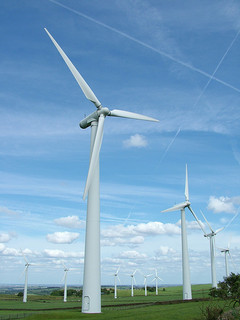Please visit ELP’s new website:
http://environment.law.harvard.edu/emmett-clinic/
The Emmett Environmental Law and Policy Clinic offers students an opportunity to do real-life and real-time legal and policy work. Clinic offerings include local, national and international projects covering the spectrum of environmental issues. Depending on the project, students may undertake litigation and advocacy work by drafting briefs, preparing testimony, conducting research, developing strategy, and reviewing proposed legislation.
Some students work off-campus with government agencies and nonprofit organizations, while others work on-campus on cutting-edge projects and case work under the supervision of Clinical Professor and Director Wendy Jacobs, Senior Clinical Instructor Shaun Goho, and Clinical Instructor Aladdine Joroff.
For the 2013-2014 academic year, the Clinic’s projects include:
Offshore Drilling: In an on-going project, the Clinic is developing recommendations for improvements to the regulatory regime governing offshore oil drilling. In particular, the Clinic has examined whether and to what extent the Department of Interior should rely on standards developed by the private sector; identified needed reforms of the National Environmental Policy Act (NEPA) process; and identified ways to compare the environmental performance of drilling companies. This year, Clinic students are developing specific recommendations for better coordinating reporting to, and information sharing among, the various agencies that receive/require/collect information about the actual or potential environmental impacts of offshore drilling. In addition, the Clinic plans to submit comments on the Bureau of Safety and Environmental Enforcement’s recent proposal to revamp its regulations governing production safety systems for offshore oil and gas operations.
Conservation Easements: Clinic students are analyzing, evaluating and comparing several federal and state easement purchase and tax-incentive programs to identify the characteristics and safeguards that make programs effective in achieving conservation goals, as well as gaps or opportunities for reform. This project aims to help inform the public policy debate about the value and utility of conservation easements, and to support efforts to ensure that conservation easements effectively protect high priority conservation values over the long term.
Green Infrastructure: Clinic students and the HLS Environmental Policy Initiative are looking to identify and propose ways to align local codes and policies to enable and encourage green infrastructure in municipalities, particularly with regard to regional stormwater and waste water management. Students are looking into legal obstacles (state and local) and benefits to regionalizing stormwater management, creative financing mechanisms, incentive structures, and potential regional trading systems. This is the first project under the Clinic’s pilot partnership with EPA Region I.
Hydraulic fracturing: The Clinic has worked on several issues related to hydraulic fracturing, including drafting a guide for landowners who are approached by a gas driller about signing a lease, investigating the authority of municipalities to regulate hydraulic fracturing directly or indirectly through regulations that apply to any industrial enterprise in the community, and commenting on proposed regulations that allow the use of well brine for dust suppression on roads. This year, Clinic students and the HLS Environmental Policy Initiative are developing recommendations for state programs that conduct baseline water testing and respond to complaints from landowners near drilling sites who believe their well water has been contaminated.
Solar photovoltaic litigation: Over the last several years, the Clinic has represented several small renewable energy companies in litigation related to a new interpretation of the electrical licensing laws adopted by the Massachusetts Board of State Examiners of Electricians. In this interpretation, the Board claimed that all aspects of a solar photovoltaic (PV) installation must be performed only by licensed electricians. The Clinic has been defending the ability of small businesses to continue performing the financial, planning, and other non-electrical parts of PV projects. In July 2012, the Clinic won a victory in one of this litigation when a state Superior Court judge ruled that the Clinic’s client could advertise and contract for PV projects.
Amicus briefs: The Clinic regularly files amicus briefs in significant environmental cases. This year, the Clinic will be filing briefs in cases before the U.S. Supreme Court and the Massachusetts Supreme Judicial Court.
Former student and clinical fellow Leah Cohen speaks about her experiences in the clinic:






